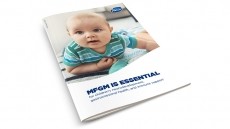Nestlé study claims multi-micronutrient fortified cereal pros

Study authors, Klaus Eichler et al. found that cereals with other micronutrients - such as zinc and vitamin A – could significantly raise haemoglobin levels in young children’s blood.
The findings by the Winterthur Institute of Health Economic in Switzerland could benefit young children with anaemia in developing countries.
Anaemia is a lack of red blood cells caused by iron deficiency that is prominent in young children and pregnant women, particularly in the developing world.
Add zinc and Vit A
The study, published in the Bio Med Central Public Health journal, reviewed results of 18 trials involving over 5,400 children aged between six months and three years.
It found that iron multi-micronutrient fortification could increase haemoglobin levels and reduce risk of anaemia by 57% compared to non-fortified products.
“Multi micronutrient fortified milk and cereal products can be an effective option to reduce anaemia of children up to three years of age in developing countries,” concluded the researchers.
“For zinc and vitamin A fortification only surrogate parameters are reported, but the combination with iron leads to a more pronounced effect on haemoglobin levels compared to an iron single-fortification strategy,” they continued.
Functional benefits?
The researchers were however unable to determine whether micronutrient fortification of milk and cereal products gave any functional health benefits.
“Information about functional health outcomes (e.g. weight gain) and morbidity was scarce and evidence is inconclusive. Risk of bias is unclear due to underreporting, but high quality studies lead to similar results in a sensitivity analysis.”
“The evidence for functional health outcomes is inconclusive,” they said.
The study was commissioned by Nestlé and the Nestlé Nutrition Institute.
Source:
BMC Public Health 2012, 12:506
doi:10.1186/1471-2458-12-506
‘Effects of micronutrient fortified milk and cereal food for infants and children: a systematic review’
Authors: Klaus Eichler, Simon Wieser, Isabelle Rüthemann and Urs Brügger













